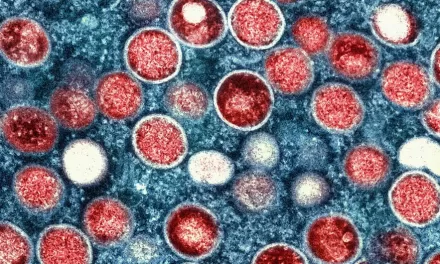New Delhi, July 2024 – A groundbreaking study from the All India Institute of Medical Sciences (AIIMS), New Delhi, has revealed that yoga can significantly improve the health of patients suffering from Rheumatoid Arthritis (RA). This chronic autoimmune disease, which causes painful inflammation in the joints and can affect the lungs, heart, and brain, might find a new complementary therapy in the age-old practice of yoga.
RA is notorious for causing joint damage and severe pain, often leading to reduced mobility and quality of life. Traditional treatments focus on managing pain and slowing disease progression. However, the collaborative study conducted by AIIMS’ Lab for Molecular Reproduction and Genetics, the Anatomy Department, and the Department of Rheumatology, and supported by the Department of Science and Technology (DST), has delved deeper into the benefits of yoga at a cellular and molecular level.
Yoga’s Impact at the Molecular Level
The study found that yoga helps to lower inflammation by controlling cellular damage and oxidative stress (OS). Yoga achieves this by balancing pro- and anti-inflammatory cytokines, raising endorphin levels, and reducing cortisol and C-reactive protein (CRP) levels, while maintaining melatonin rhythms. These effects help to disrupt the cycle of inflammation and an overactive immune system typical in RA patients.
At a molecular level, yoga boosts the activity of the telomerase enzyme and genes involved in DNA repair and cell cycle regulation, which slows down the aging process of cells. Additionally, yoga improves mitochondrial function, enhancing energy metabolism and reducing oxidative stress, which protects against telomere attrition and DNA damage.
Clinical Findings
Dr. Rima Dada and her team at AIIMS documented that patients who practiced yoga experienced reduced pain perception, improved joint mobility, decreased disability, and an overall enhanced quality of life. These benefits were attributed to yoga’s ability to establish immunological tolerance and molecular remission.
The study, published in Scientific Reports in 2023, highlights that yoga may help manage stress, a known trigger for RA symptoms. By lowering stress hormones like cortisol, yoga indirectly reduces inflammation. Improved mitochondrial function impacts energy production and cellular health, while increased levels of beta-endorphin, brain-derived neurotrophic factor (BDNF), dehydroepiandrosterone (DHEA), melatonin, and sirtuin-1 (SIRT-1) contribute to reduced severity of comorbid depression. Yoga also promotes neuroplasticity, aiding in better coping strategies and further reducing depression severity.
A Natural and Cost-Effective Therapy
This research provides compelling evidence for the potential of yoga as a complementary therapy for RA patients. Unlike conventional drugs, yoga has no side effects and offers a cost-effective, natural alternative for managing severe autoimmune conditions. By not only managing symptoms like pain and stiffness but also contributing to disease control and improved quality of life, yoga presents a promising addition to RA treatment regimens.
For more details, you can access the full study here.











